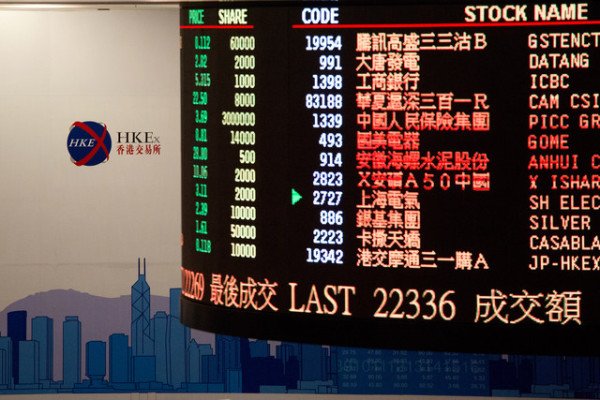Hong Kong shares sunk on February 11 as trading resumed after the Lunar New Year break.
The Hang Seng index closed down 742.37 points or 3.85% to 18,545.80.
The Chinese markets remained closed for a longer New Year break. Those markets that were open in the region over the past days had all seen hefty losses.
Japanese shares had tumbled in to bear territory after a two-day rout, but the Nikkei is closed on February 11 for a national holiday.
The continuing concern over the global economy and China’s slowing growth was confirmed by Federal Reserve chair Janet Yellen in a speech to Congress on February 10.
Janet Yellen warned that financial conditions in the US had recently become “less supportive of growth”, while China’s “unclear” currency policy was fuelling global stock market volatility.
“This uncertainty led to increased volatility in global financial markets and, against the background of persistent weakness abroad, exacerbated concerns about the outlook for global growth.”
South Korean shares also resumed trade after the New Year break and joined the regional downward trend.
The Kospi index fell sharply by 2.9% to close at 1,861.54 points, after retreating as much as 3.1%, its biggest percentage loss since May 2012.
Auto makers were among the worst hit as fresh data showed that vehicle exports dropped by almost 20% in January, because of falling demand in emerging markets.
Hyundai, Kia and Ssangyong all lost around 2%.
Australian shares, though, managed to edge higher on February 11, providing some relief after two days of losses.
The ASX/200 closed 1% higher at 4,821.10 points after losing more than 4% since the beginning of the month.
Before the market opened, the Virgin Australia airline reported a swing back to half-yearly profit after cutting costs and profiting from lower fuel prices.
The forecast of full-year profitability comes after two years of net losses.
However, investors seem to have expected better results and remain cautious about the airline’s prospects.
Virgin Australia shares fell by more than 6% throughout the day.
